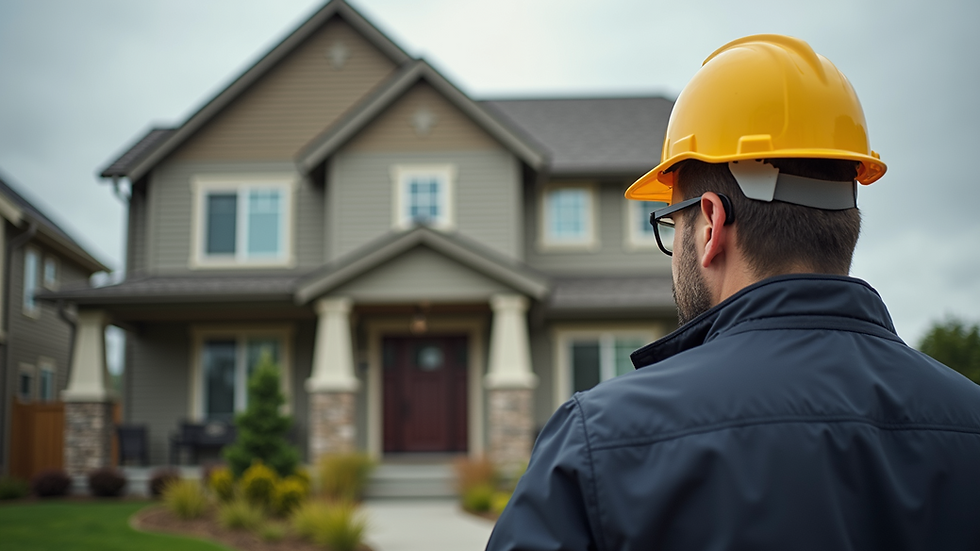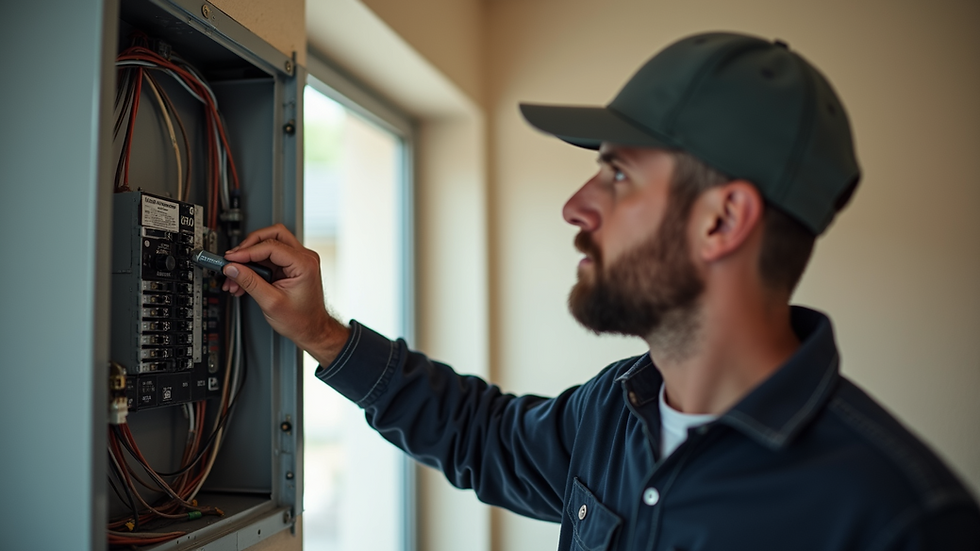Comprehensive Home Inspection Services Explained
- Md Uddin
- Aug 17, 2025
- 4 min read
Buying a home is one of the biggest decisions you’ll ever make. It’s exciting, but it can also be a bit nerve-wracking. You want to be sure the house you’re investing in is safe, sound, and free from hidden problems. That’s where a comprehensive home inspection comes in. It’s your best tool to understand the true condition of a property before you commit.
A thorough home inspection helps you avoid costly surprises down the road. It gives you peace of mind and confidence in your purchase. In this post, I’ll walk you through everything you need to know about comprehensive home inspections. I’ll explain what they cover, why they matter, and how to get the most out of them.

What Are Comprehensive Home Inspections?
Comprehensive home inspections are detailed evaluations of a property’s condition. Unlike a quick walkthrough, these inspections dig deep into the structure, systems, and components of a home. The goal is to identify any issues that could affect safety, functionality, or value.
A typical comprehensive inspection covers:
Roof and gutters: Checking for leaks, damage, and proper drainage.
Foundation and structure: Looking for cracks, settling, or signs of water damage.
Electrical system: Ensuring wiring, outlets, and panels are safe and up to code.
Plumbing: Testing pipes, fixtures, water heaters, and drainage.
Heating and cooling systems: Verifying HVAC units work efficiently.
Interior elements: Walls, ceilings, floors, windows, and doors for damage or wear.
Insulation and ventilation: Checking attic and crawl spaces for proper airflow and insulation.
Appliances: Testing built-in appliances for functionality.
The inspector will provide a detailed report with photos and notes. This report helps you understand the home’s condition and decide if repairs or negotiations are needed.
Comprehensive inspections are especially important for older homes or properties that have been vacant for a while. They give you a clear picture of what you’re buying.

Why Choose Comprehensive Home Inspections?
Choosing a comprehensive home inspection means you’re getting a full picture of the property’s health. It’s not just about spotting obvious problems. It’s about uncovering hidden issues that could cost you thousands later.
Here’s why comprehensive inspections matter:
Avoid costly repairs: Knowing about problems early lets you budget for repairs or ask the seller to fix them.
Safety first: Inspections catch hazards like faulty wiring or mold that could harm your family.
Negotiation power: Use the inspection report to negotiate a better price or request repairs.
Peace of mind: Feel confident that your new home is safe and sound.
Insurance requirements: Some insurance companies require inspections before coverage.
When you hire a professional, experienced inspector, you get a thorough assessment. They know what to look for and how to spot warning signs. This expertise is invaluable.
If you want reliable and affordable home inspection services, Polk Home Inspection is a trusted choice in Florida. They provide detailed reports and friendly service to help you make smart decisions.
What is the average cost of a home inspection in Arkansas?
While this post focuses on Florida, it’s helpful to know what home inspections typically cost in other states like Arkansas. On average, a home inspection in Arkansas ranges from $300 to $500. The price depends on factors like the size of the home, age, and complexity of the inspection.
Keep in mind that a higher price often means a more thorough inspection. It’s worth investing in a detailed report to avoid surprises later. Some inspectors also offer additional services like radon testing or termite inspections for an extra fee.
If you’re buying in Florida, prices may vary slightly, but the value of a comprehensive inspection remains the same. Always ask for a clear quote upfront and check what’s included.

How to Prepare for a Home Inspection
Preparing for a home inspection can help the process go smoothly and ensure you get the most out of it. Here are some tips:
Be present during the inspection: Walk through the home with the inspector. Ask questions and take notes.
Clear access to key areas: Make sure the inspector can easily reach the attic, basement, electrical panel, and HVAC units.
Provide documentation: If the seller has maintenance records or warranties, share them with the inspector.
Test utilities: Ensure water, electricity, and gas are turned on for testing.
Plan for about 2-3 hours: Inspections take time, especially for larger homes.
Being involved helps you understand the findings better. You’ll learn about maintenance tips and potential issues firsthand.
What to Do After the Inspection
Once you receive the inspection report, take time to review it carefully. Here’s what to do next:
Discuss findings with your real estate agent: They can help you understand the report and decide on next steps.
Prioritize repairs: Some issues are urgent, like electrical hazards or leaks. Others can wait.
Negotiate with the seller: Use the report to ask for repairs or a price reduction.
Schedule further inspections if needed: Sometimes specialists are required for things like mold or pests.
Plan your maintenance: Use the report as a guide for future upkeep.
Remember, no home is perfect. The goal is to know what you’re dealing with and make informed choices.
If you’re ready to schedule a comprehensive home inspection, don’t hesitate to reach out to Polk Home Inspection. They’re committed to helping you feel secure and confident in your new home. Call 863-513-9426 today and take the first step toward a worry-free purchase.






Comments